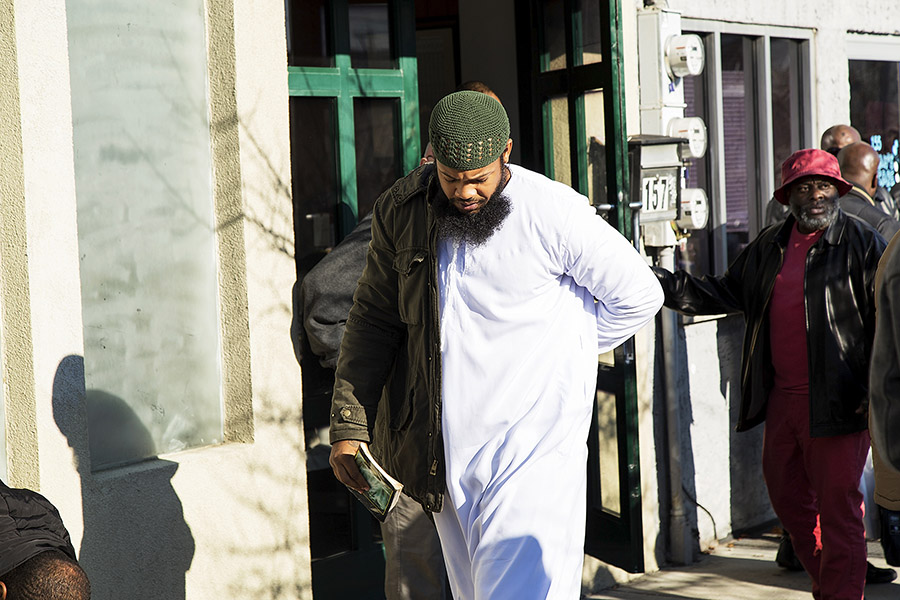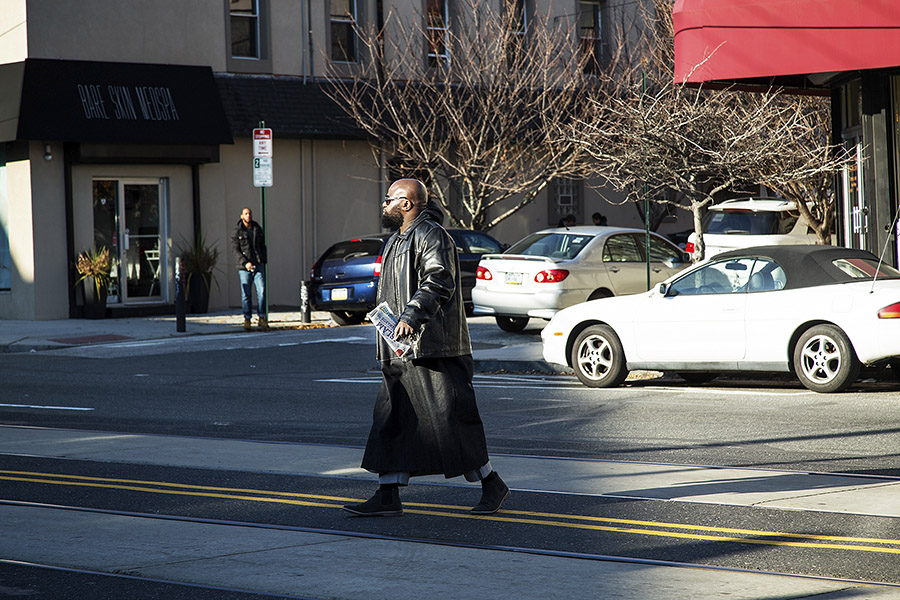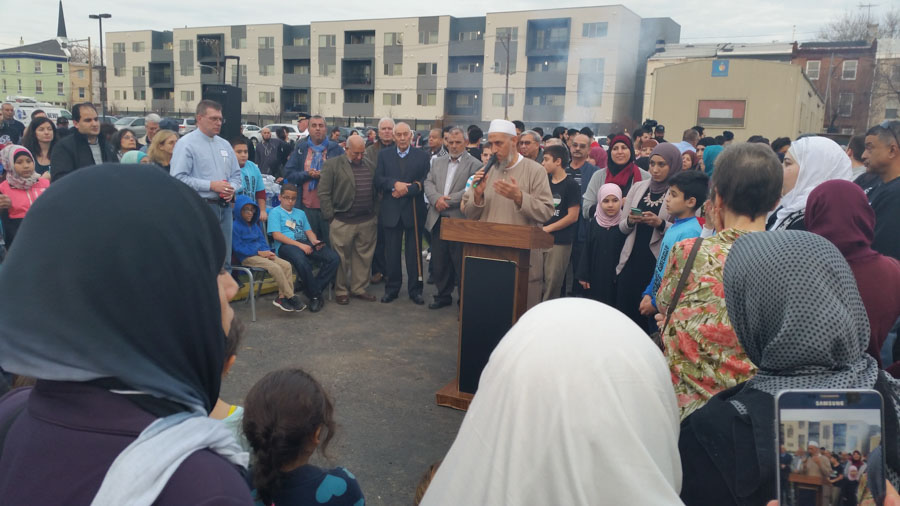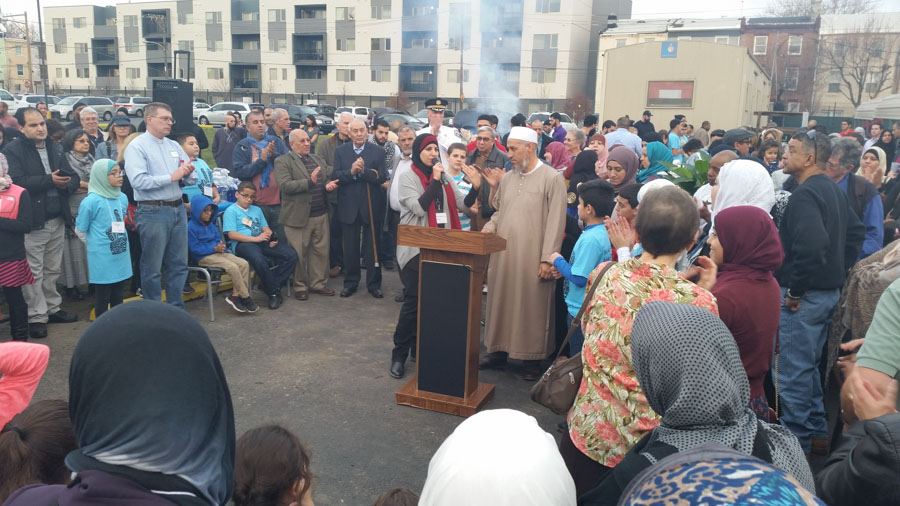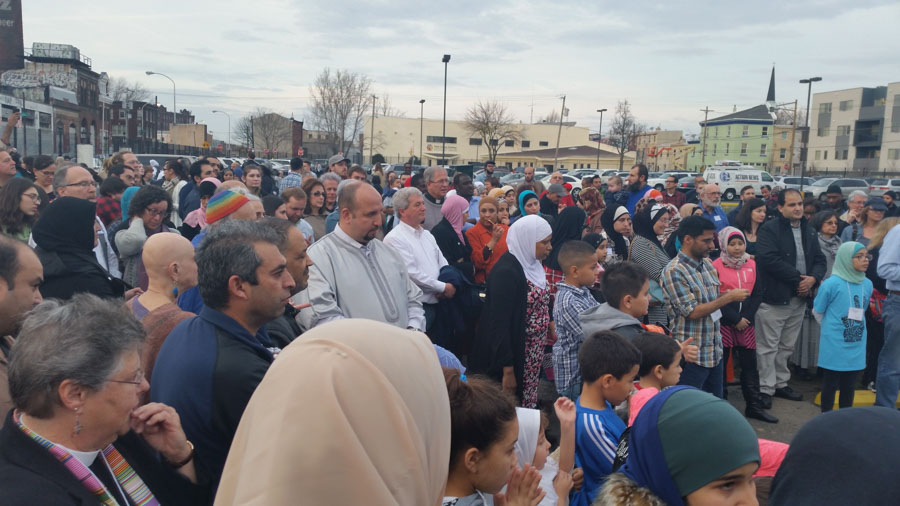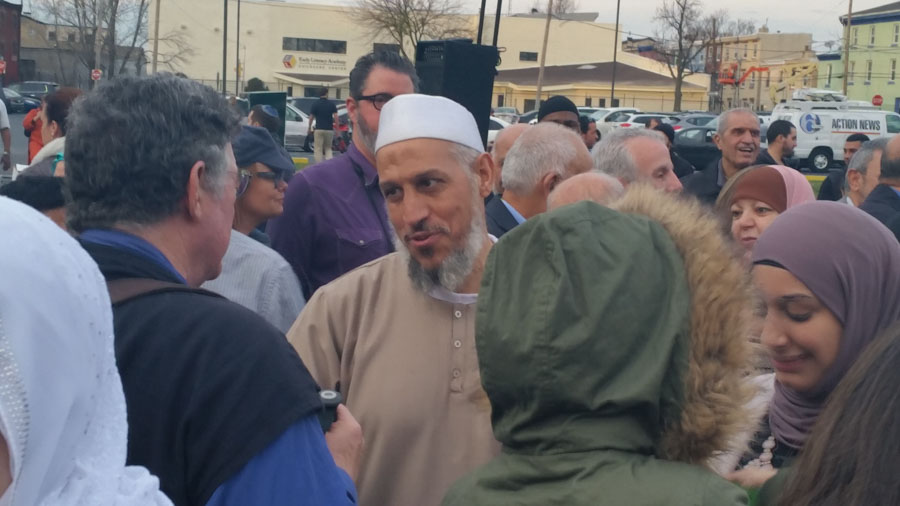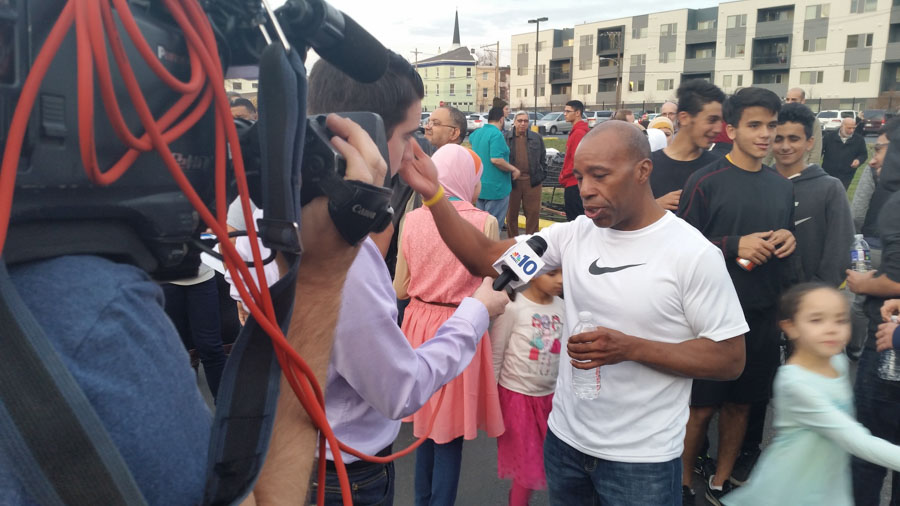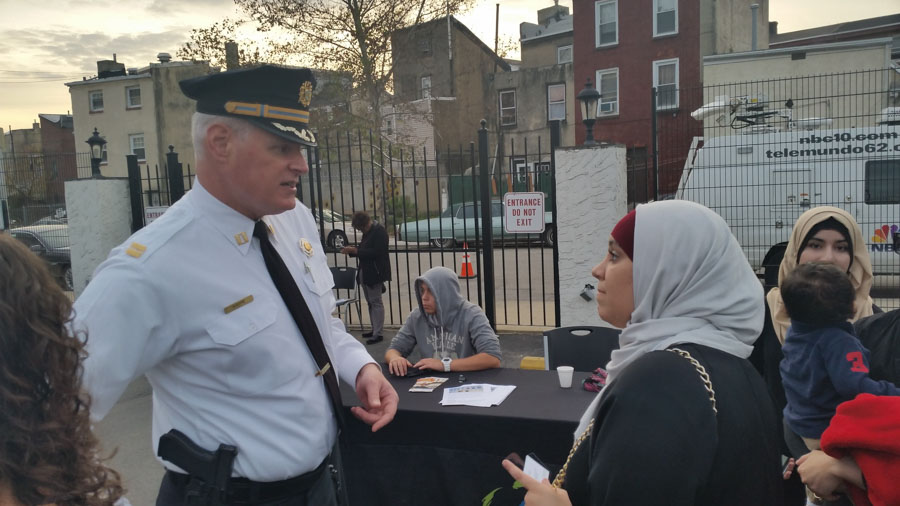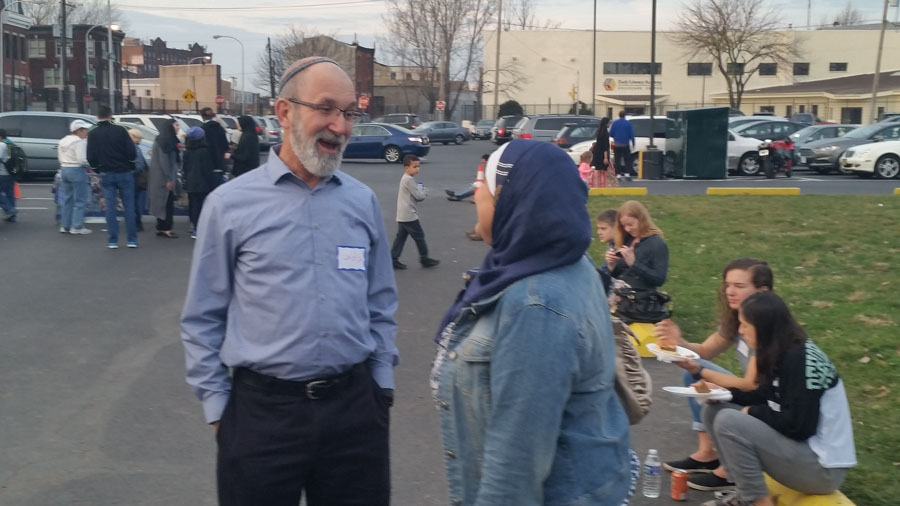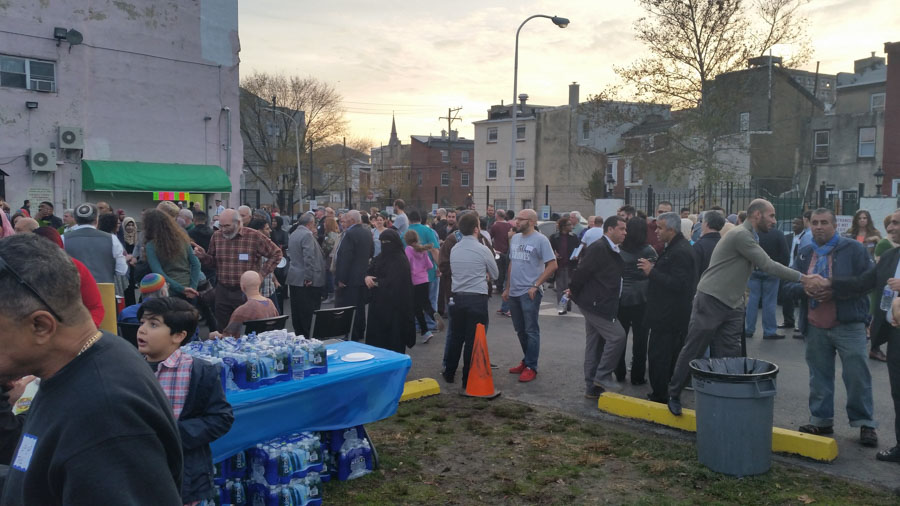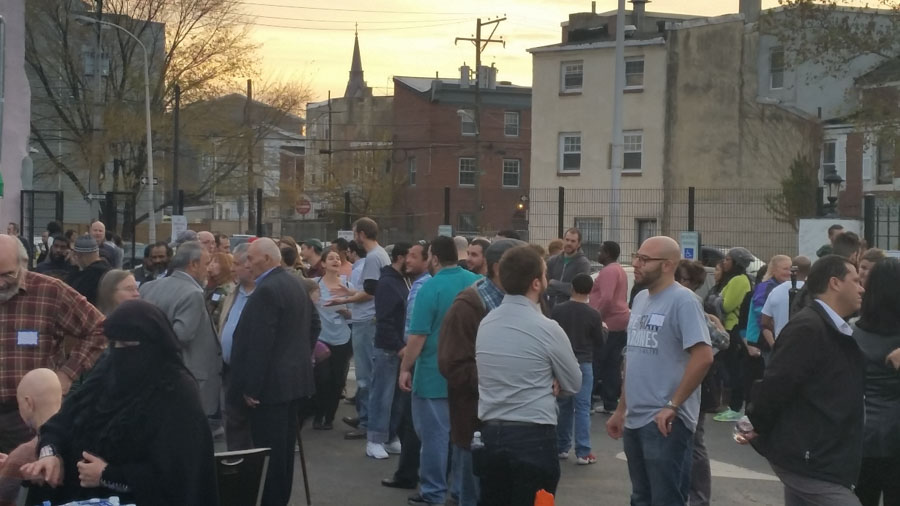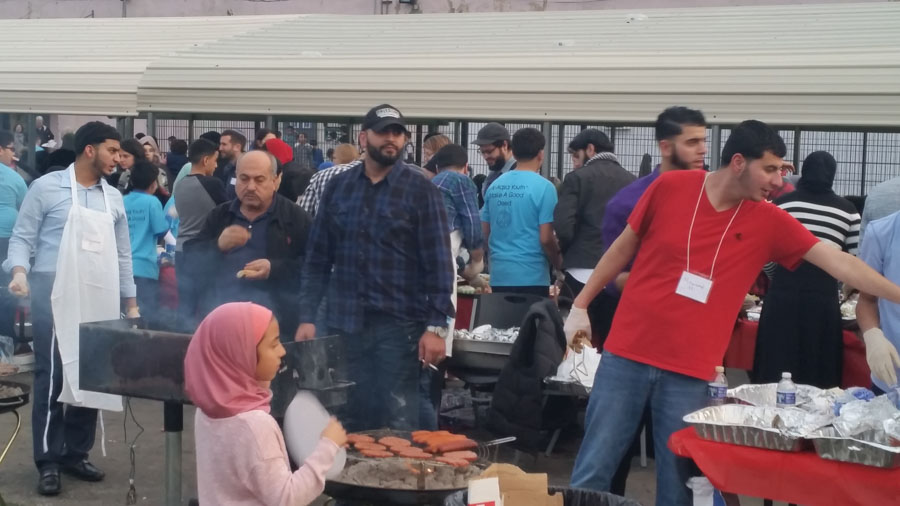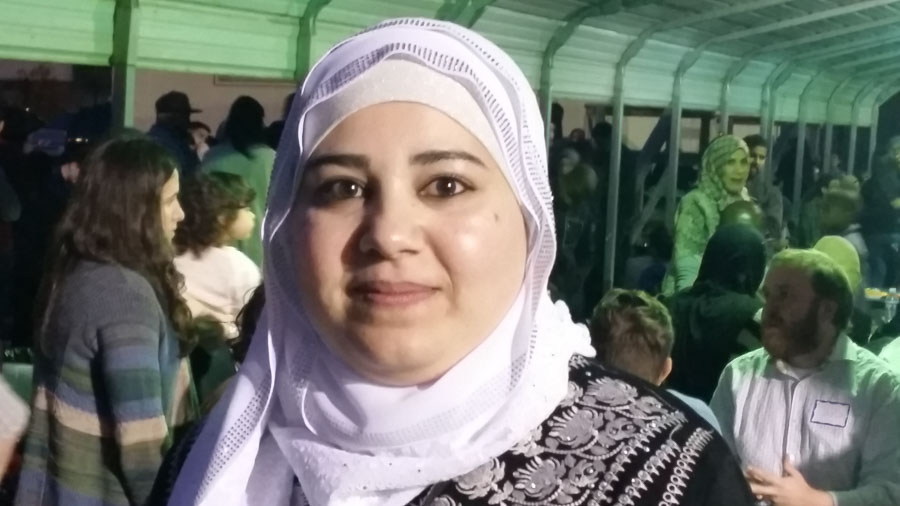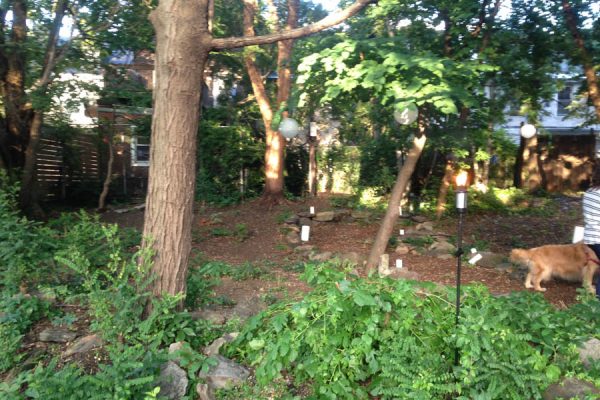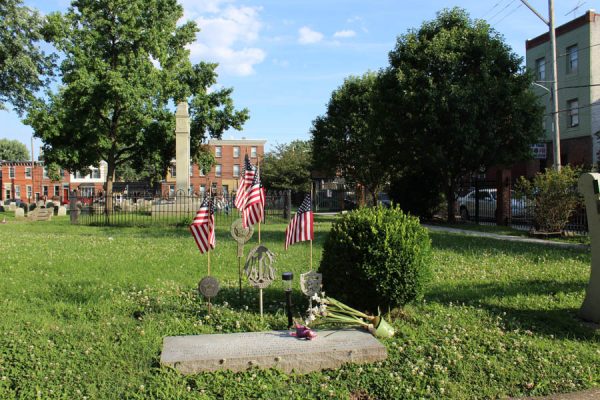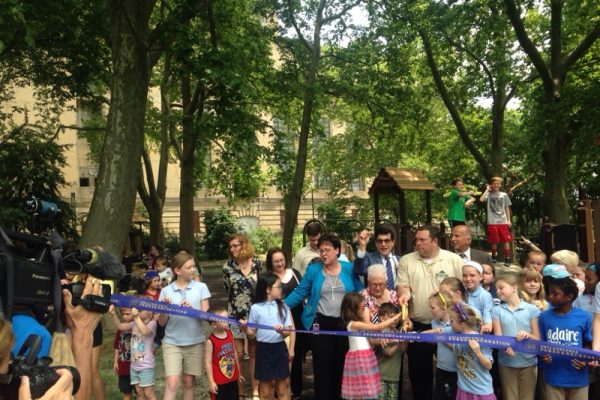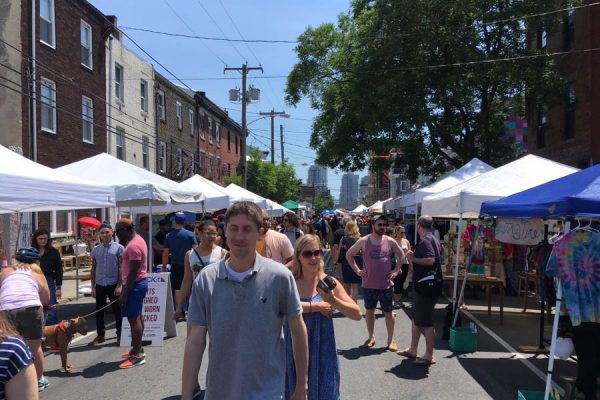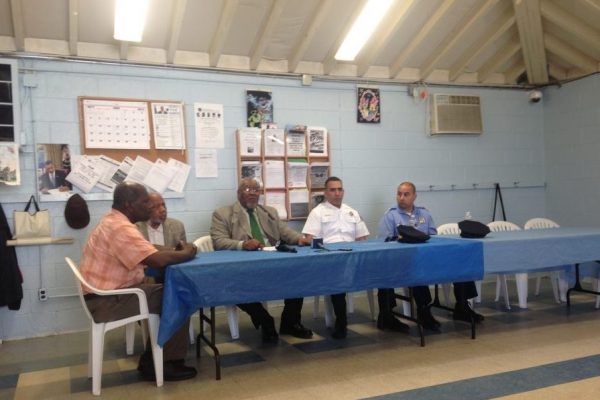Islam in the Riverwards – PART II: Communities Must Combat Islamophobia Locally to Defeat ISIS and Other Extremists Abroad
On December 7, a severed pig’s head was discovered outside of Al-Aqsa Mosque (1501 Germantown Avenue) in Kensington. Marwan Kreidie, the Executive Director of the Arab American Development Corporation and spokesperson for the Islamic Society, told PhillyVoice that “This is the first time anything like this has happened.”
This is one of two local-area mosques in the Riverwards, with the other one being the Albanian Masjid that The Spirit profiled in our “Islam in the Riverwards” cover story on November 11, 2015. Those who practice their religious freedoms at Al-Aqsa do not practice Quietist Salafi Islam like those at the Albanian Masjid. According to Imam Mohamed Shehata, the theology taught at Al-Aqsa is held within the broad sect of Sunni Islam.
Surveillance video shows a red pick-up truck driving around Al-Aqsa twice just before 11PM the night before the pig’s head was discovered. The police report mentions that an object was thrown from the passenger-side door of the truck on the second trip around and that the object landed exactly where the pig’s head was found the following morning.
Followers of Islam place religious restrictions on the consumption of pork meat and its products.
“The intent of that person [who threw the pig’s head] was obviously a hate crime — it was an attempt to deface a religious institution,” Kreidie told Eyewitness News.
Mayor-elect Jim Kenney released a statement following the incident saying, “The bigotry that desecrated Al-Aqsa mosque today has no place in Philadelphia. The City of Brotherly Love and Sisterly Affection has a long history of coming together in the face of challenge. We cannot allow hate to divide us now, in the face of unprecedented difficulties. I ask all Philadelphians to join me in rejecting this despicable act and supporting our Muslim neighbors.”
It is an unfortunate fact that, in the wake of terrorist attacks in San Bernardino, Paris and Lebanon (just to name a few), Islamophobic sentiment and religious tension is mounting internationally and those in communities around the United States are reacting by committing extremist acts of their own. The provocative act at Al-Aqsa is just one example of this sentiment hitting home, right here in the Riverwards.
In early October, Mint Press News reported on an FBI warning about “militia extremists” targeting mosques and Muslim community centers with violence. The Daily Beast also published an article regarding the uptick of Anti-Muslim hate crimes, which include a number of violent incidences. The piece cites a newly released FBI report on annual hate crime statistics, which shows that of the 1,092 reported hate crimes related to anti-religious sentiment in 2014, 16.3 percent were anti-Muslim — a total of 154 incidents and 184 victims.
According to a report in the Intercept by Glenn Greenwald, in the past week alone there have been at least 14 extremist acts of hate/violence committed against Muslims in the US, including the attack of two Muslims women in Tampa, FL. Their attorney elaborated on the incident saying, “one of the women was shot at and another one was nearly driven off the road — both because of their Muslim faith.”
In less than two decades Islamophobia has moved from the fringes of society to an unabashed ideology that currently encompasses a broad scope of mainstream politics (see: Donald Trump, Ted Cruz and Ben Carson). A new report by the anti-racist group Hope Not Hate notes that groups supporting these previously “extreme” ideas have become increasingly well resourced in the US. Eight foundations have donated more than $57 million to Islamophobic groups since the 9/11 attacks.
“There will always be people who will be incorrigible in their hatred of Muslims, in their desire to suggest that ISIS is the only way to be Muslim,” Graeme Wood, a journalist who penned an Atlantic article titled “What ISIS Really Wants”, told The Spirit.
“But it’s not a conclusion you would reach by talking to [Abdullah] Pocius. The whole point of the section about Philadelphia in my article [“What ISIS Really Wants”] was to show that not only is ISIS not the only inevitable conclusion of reading the Quran, but it’s not even the inevitable outcome of being a strict literalist.”
Wood’s article was where The Spirit first learned about Pocius — an Imam who leads a congregation of about 300 people at the Albanian Masjid located near the corner of 2nd Street and Girard Avenue. The specific theological perspective taught by Pocius and those who worship at the Albanian Masjid is Quietist Salafi Islam.
Wood asserts that partly because of that specific nature, the particular theological practice of Pocius and his congregation could help undermine the extremist ideologies of ISIS. By creating counter-narratives to ISIS, which is to identify theological, historical and societal vulnerabilities in the bastardized version of Islam put forth by ISIS, Wood asserts that literalist Muslims like Pocius can help pave the way toward developing convincing counter-arguments to extremist interpretations of Islam.
Wood describes Pocius as a man who not only denounces the actions of ISIS and other extremist groups, but is able to cite specific Islamic reasons for doing so. Wood describes the Quietist Salafi sect of Islam as one that, “offers a hard-line alternative to the Islamic State — just as uncompromising, but with opposite conclusions. This sect has proved to be appealing to many Muslims.”
But why is it important to discuss these counter-narratives? As ISIS continues to put forth their narrative of Islam, not enough people seem to present or discuss the various Islamic critiques of the group’s theology.
“Islamic State supporters know how to react to Muslims who ignore parts of the Quran: with takfir (excommunication) and ridicule,” Wood added. “But they also know that some other Muslims (like Quietist Salafis) read the Quran as assiduously as they do and pose a real ideological threat [to what ISIS is trying to achieve].”
Pocius and those at the Albanian Masjid have chosen to stand up for their view of the religion. In doing so, they have vastly differentiated their understanding of Islam from those who adopt and support extremism.
“Anytime you have a society, you’re going to have a lot of different groups and there is going to be people who are and who feel like they are persecuted. But in Islam, does relative persecution justify social upheaval that’s going to make a Somalia out of Syria? Well, it just did!” Pocius said. “We [Quietist Salafis at the Albanian Masjid] say no, absolutely not. It is better to bite down and deal with [persecution] then to deal with chaos.”
Ali Adeeb Alnaemi is a Professor at NYU’s Center for Middle Eastern and Islamic Studies. He was also News Editor of The New York Times’ Baghdad Bureau from 2004-2007. Alnaemi points to the importance of confronting ISIS and other extremists on the ideological battlefield.
“The ideological war is sort of a long term war and it’s actually needed more than… traditional combat. You can defeat [Islamic Extremists like ISIS] in Syria or Iraq [with military force], but then you will find them somewhere else. Unless you really uproot this ideology you will keep fighting them forever.”
Theological researchers have differentiated three main forms of Salafi Islam: Political, Jihadi/Extremists and Quietist. Political Salafis, such as the Al-Nour Party in Egypt, are differentiated by their desire to implement their form of Islam through political activism, protest and direct participation in civics and governance. Jihadi/Extremists, which ISIS is a part of, believe in social upheaval and violence as a reaction to civil unrest and repression. Quietist Salafis, such as Pocius and his congregation at the Albanian Masjid, differentiate themselves from these other groups theologically as well as politically by stressing the absolute need for peaceful social cohesion.
But how does Quietist Salafi Islam make a good potential counter-narrative to ISIS? All three Salafi sects claim to study the teachings of the Prophet and his first followers almost exclusively. But while this limited similarity in origin may cross between the two theological understandings of Quietists and Extremists, the ways they practice their religion could not be more different.
There are a number of key differences between the two groups, but one clear distinction is how they disagree in the use of violence and social upheaval. ISIS believes in a top-down approach that seeks to crush all dissent to their Islamic rule with nothing short of violence, especially during times where social unrest and repression are largely abound. The same period of social division and repression that ISIS claims warrants their brutal enforcement of Islam brings Pocius to a completely opposite conclusion.
“There are numerous statements from the Prophet instructing us of what to do,” Pocius said. “We are taught to be patient, to focus on our families and to call the people around us and others to the message of worshiping God directly without any intermediary.”
Pocius cities specific texts within the Quran that only point to the use of violent means of uprising in severely limited circumstances. Pocius also points to Abdullah Ibn Abbas, one of the Prophet’s companions, who sat down with his dissenters and let them know that dissent to the point of bloodshed was absolutely forbidden.
“The classic books of creed all warn against causing social upheaval,” Pocius said.
Dr. Joas Wagemakers, an Assistant Professor of Islamic Studies at Utrecht University in the Netherlands who specializes in the study of Salafism, explains that “Quietists are more willing to look at the underlying principles of what they see as Islam, as well as Muslim interests. They also are much more likely to look at both the context of the situation and the Quranic verse itself, as where ISIS takes a very short term view where they rush and make haste with their affairs.”
Graeme Wood believes Quietists in the Riverwards and elsewhere are attracted to these interpretations for very simple and practical reasons.
“As a Muslim, you have to pray five times a day, you have to eat the right foods, take care of your family… All of these things are much harder to do when you are in a position of fearing for your life,” Wood said. “So the Quietists would say if [ISIS and other extremists] are pushing a program of Islam that stops people from living pious lives then you are not doing the Muslim thing.”
But Salafi researchers are not fully persuaded that the best way to counter ISIS is through better Salafi theology. Omid Safi, Ph.D., is a professor of Islamic Studies at Duke University. He believes that the premise assumes, to some extent, that those in ISIS and their potential recruits are studying theology extensively. According to Safi, there is little evidence of that.
“My sense is that the more effective way to counter ISIS is not by espousing Quietist Salafism or traditionalism, even though those would be welcome,” Safi said. “But rather by addressing the very political context that is serving as ISIS’ recruiting base: corruption, violence and tyranny of Middle Eastern regimes.”
Alireza Doostdar is Assistant Professor of Islamic Studies and the Anthropology of Religion at the University of Chicago Divinity School. He wrote an article entitled “How Not to Understand ISIS”. In a conversation with The Spirit, he argued that unless global society addresses the underlying causes of extremism, any counter-narrative is severely limited in what it can accomplish.
“This context (of understanding the causes of extremism) needs to be part of the solution, otherwise you are just giving people books to read. People can’t eat books, they can’t take the book and solve their oppression problem,” Doostdar said.
Pocius isn’t serving literature on a silver platter to his followers. Instead he helps debunk extremism through his sermons and lectures. He has experienced one instance where his teachings and guidance acted as a counter-narrative to Islamic extremism.
“I had one guy a few months back that was thinking about going over to [Syria]. The first thing I told him was, ‘Hey, man — stay off the Internet,” Pocius said. “But he knew the reason why it was not a good move — It was because of [Quietist Salafi Islam]. We have detailed arguments that say just because there are people overseas getting raped and killed does not give you the right to try and be Superman. Being Superman is in no way realistic or Islamic.”
Knowing one another on a personal level and being part of a real community can also offer some hope for the future and being part of a neighborhood can show us all how to undercut all forms of extremism, including Islamophobia. It is also imperative to take community concerns about Islam seriously and address them directly instead of holding in questions and making blanket statements about a faith.
“We have to give precise answers based on analysis of reality, by learning what the root causes really are.” Dr. Heiner Bielefeldt, a German Special Rapporteur on Freedom of Religion at the UN, told The Spirit. “It’s important to understand where Islam is abused — not from only the outside, but from the inside as well. Let’s not replace the negative stereotypes of Islam with simple rosey messages.”
Wood expanded briefly on a similar point in his Atlantic Magazine article: “The religion (of Islam) allows many interpretations and Islamic State supporters are morally on the hook for the one they choose. And yet simply denouncing the Islamic State as un-Islamic can be counterproductive.”
Not addressing these concerns about Islam that people in the community have can often embolden radical groups, be they Islamic extremists or Islamophobes, while at the same time it disenfranchises everyday people from having a necessary conversation. To Pocius, this dialogue is critical in building a community with nuanced and educated understandings of Islam. Maintaining these open lines of communication is half the battle of inoculating people in our community to extremism itself.
“Extremism goes away when people actually talk to one another,” Pocius said. “My Jewish neighbor moved out of Israel, he is very religious, and we sit around and talk all the time.”
Dr. Bielefeldt believes shared experience between different people is the most proven way to bring about better relationships in the community and beyond.
“If people know their neighbors, they are much less likely to go into abstract forms of conspiracy projection because they have had a real dialogue with people they may have not understood before,” Bielefeldt said.
A dialogue between neighbors of different backgrounds has become a top priority in the Riverwards — On Saturday, December 12, a “Picnic for Solidarity” was held at The Al-Aqsa Islamic Society as a direct response to the pig’s head incident.
More than 350 people of all faiths and creeds gathered in the parking lot next to Al-Aqsa to show their support for those in the local Muslim community. Through the common bonds of humanity and neighborhood, people from across the city came together to share food, learn about Islam and condemn the perpetrators of last week’s act.
“The objective of these kinds of despicable acts of hate is to divide us, but really they have only brought us as a community together,” Derek Dorsey, a non-Muslim neighbor of Al-Aqsa, said to a cheering crowd at the solidarity event. Dorsey organized the event in less than a week.
“I live a block away [from Al-Aqsa] and I was hurt that something like this could happen here in our community,” Dorsey said. “I knew right away that I had to do something about this and I also knew that other people had to feel the same way. So I called the Mosque (Al-Aqsa) and told them I wanted to put an event together. They were very receptive.”
During the event, leading members of Al-Aqsa spoke of their tremendous gratitude for the amount of overwhelming support they have received. The day’s event also focused on highlighting a strong call to action to confront hatred in all of its ugly forms.
“I ask two things of you Muslims and non-Muslims. The first is to call out hatred whenever and wherever you see it, whether it be at school, at your workplace, in your neighborhood, on your Facebook wall, wherever you see it,” a Muslim community activist who spoke at the event said. “Second is please register to vote and vote against hate in every election: federal, state and local.”
Other speakers at the event included a Protestant Preacher, a Jewish Rabbi and various Muslim leaders. Some noted the importance of the gathering not just for our community, but for the rest of the world to see, particularly during recent times of global violence and hatred.
“[There are] those who act by spreading the wrong message of Islam and not acting upon the true meaning of the religion,” Mohamed Shehata, the Imam of Al-Aqsa, stated in Arabic while his words were translated for the crowd by his daughter Lilyalaa Shehata. “I hope that the media and authorities address this and let people know they shouldn’t do any kind of harm to one another. Because once there is fear, people are not capable of giving. But when there is no fear, good is given.”
In light of this fear, members of the Albanian Masjid also believe they can overcome these extreme narratives of ISIS and Islamophobic sentiment by showing that they mean well by simply and peacefully practicing their interpretation of Islam.
“We have to show that we are doing what is right,” Thomas Lawson, a member of the Albanian Masjid, said. “Then the message is clear: If ISIS calls itself correct Islam, what does that say about us at the Albanian Masjid and what we are doing? I stress the word ‘doing’ because it creates an interesting parallel for people — we’re not doing any of those things that ISIS does. We’re not like them.”
Pocius uses his leadership ability to show those in the neighborhood what he and the Masjid are really about.
“I have to be a good example. I have to be neighborly to non-Muslims. And it’s not some ploy, it’s just showing people, ‘Hey, I have my beliefs and they are very important to me, but I am just another human being like you.’”
Pocius continued: “My hipster neighbor is a DJ and he just loves the music of the late 80s and early 90s. I’m not about that, but he is my neighbor and Islam tells me to be a good neighbor. So one day during Ramadan, we got some extra pizzas out front and we offered some to him.”
This kind of positive example that Pocius seeks to exemplify was something that Wood noticed while interviewing him for his article in The Atlantic.
“I would feel pretty damn lucky to have Abdullah Pocius as a local Imam,” Wood told The Spirit. “He is a thoughtful guy that is decent and, by any normal standard, a good neighbor. You would be lucky to have him living on your block.”
Below are more images from last weekend’s solidarity event.
